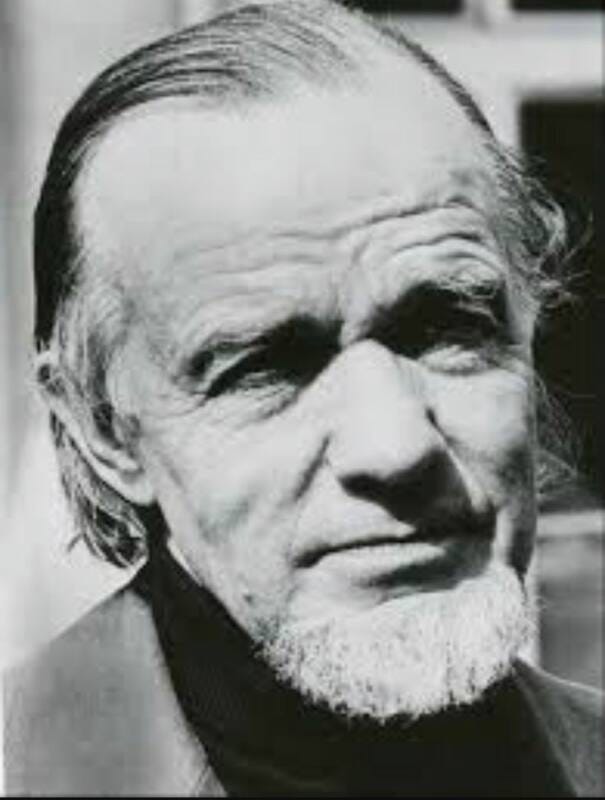Safeguarding and power dynamics
Churches will never get safeguarding right without a culture change
In my previous post, I talked about whether the church is going to learn the right lessons from what happened with Soul Survivor / Mike Pilavachi. What I’d like to do now is start to focus on some specific areas where the church has fallen away from the Bible. Today I’m going to focus on the issue of power dynamics, which is fundamental to safeguarding.
As I mentioned briefly in my latest podcast, I have some personal experience of safeguarding: I was referred to safeguarding by my last church, which ended up with me leaving. I left because I felt that the way it was handled was so ungodly and so unbiblical that I could not, in conscience, be a party to it. I will talk more about my experience in due course; however, for now I just want to say that this is not an academic issue. Rest assured that I am not saying things from a theoretical, ‘ivory tower’ perspective, but from my own personal experience.
What’s the point of safeguarding?
You can get a sense as to what safeguarding is all about (legally speaking) by looking at the way the legislation defines a “vulnerable adult”:
In this Measure, “vulnerable adult” means a person aged 18 or over whose ability to protect himself or herself from violence, abuse, neglect or exploitation is significantly impaired through physical or mental disability or illness, old age, emotional fragility or distress, or otherwise; and for that purpose, the reference to being impaired is to being temporarily or indefinitely impaired.
This is from the Church of England safeguarding legislation. I haven’t checked with other denominations but I expect it will follow the same pattern.
In other words, a vulnerable adult is one who is largely unable to defend themselves from abuse. For example, someone who has learning difficulties could be exploited for financial gain. Or an emotionally vulnerable young woman could be taken advantage of for sexual gratification. Both of these things have happened - all too frequently - and (in my experience) are often used as examples in safeguarding training.
The key thing that I want to emphasise is, safeguarding is not about keeping people safe in general. Safeguarding is specifically about preventing those who cannot defend themselves from being exploited. This is why it is restricted to children and vulnerable adults. It is especially designed to protect people who are in imminent danger, such as protecting a child from physical or sexual abuse.
The upshot is, safeguarding is particularly concerned with the use and abuse of power. You can see this in what happened with Mike Pilavachi. The press release at the conclusion of the inquiry into his conduct said: “The overall substantiated concerns are described as an abuse of power relating to his ministry.” The problem was not simply that Mike was giving inappropriate and unwanted massages to younger interns, it was that he was abusing his power to do so. Presumably, if it had been consensual, it would not have been a safeguarding matter.
It does seem to be the case that clergy are simply assumed to be in a position of power - the legislation quoted above only applies to clergy (it is the same piece of legislation as the Clergy Discipline Measure). Although safeguarding does apply to everyone in the church, it seems that clergy are singled out.
Power dynamics and the Bible
I concluded my previous post by saying that the church needs to be more Biblical in the way it approaches safeguarding. So, what does the Bible have to say about power dynamics?
As it turns out, quite a lot. This is what Jesus said about power and leadership in the church:
Jesus called them together and said, “You know that those who are regarded as rulers of the Gentiles lord it over them, and their high officials exercise authority over them. Not so with you. Instead, whoever wants to become great among you must be your servant, and whoever wants to be first must be slave of all. For even the Son of Man did not come to be served, but to serve, and to give his life as a ransom for many.” Mark 10:42-45
Jesus said that Christian leadership is to be radically different to the world’s leadership. The world’s leaders lord it over their subjects - they enjoy wielding their power and authority to dominate. But, Jesus says, “not so with you”. To be a Christian leader means to follow Jesus’ example in laying down our lives for others. The greatest leader in the Christian world is not an overlord, but a servant.
The gospel transforms Christian leadership.
The gospel transforms Christian leadership. All Christians should sacrifice themselves for others; even more so Christian for Christian leaders. Peter picks up Jesus’ words here and applies them directly to church leaders (“elders”):
To the elders among you, I appeal as a fellow elder and a witness of Christ’s sufferings who also will share in the glory to be revealed: Be shepherds of God’s flock that is under your care, watching over them—not because you must, but because you are willing, as God wants you to be; not pursuing dishonest gain, but eager to serve; not lording it over those entrusted to you, but being examples to the flock. 1 Peter 5:1-4
Leaving aside the issue of who exactly Peter means by “elders” (‘presbyters’), Peter is clearly talking about those in the category of what I have been calling ‘church leadership’!
Church leaders should be shepherds of God’s flock, not lording it over them. This is simply following Christ’s example. It’s not something different to what all Christians are expected to do - it is simply an application of the gospel to church leaders. This is basic, fundamental stuff: all Christian leaders should be ‘cross-shaped’ in the way that they lead.
I would go as far as to say that any church leader who did not look like this has not understood the gospel rightly. To the point where I would question whether they even are a Christian. If someone truly understands the gospel, it should show in the way they live their lives - and if someone does not live in a way which reflects the gospel, then it demonstrates there is something very wrong.
To be clear, I am not saying that we should expect sinless perfection of church leaders! Of course not. However, church leaders should be mature (Paul says a church leader “must not be a recent convert”, 1 Timothy 3:6). If Christian leaders do not lead in a Christ-like way, then they are clearly not mature.
Implications for safeguarding
This has big implications for safeguarding. The problem of power dynamics runs far deeper than any specific abuses which might occur. Abuses of power simply should not happen in a church with mature Christian leaders who are living in the power of the Holy Spirit. Again, this is not to expect sinless perfection of church leaders, but to hold them up to the standards required of us in the Scriptures.
Let’s think about how this has a bearing on the situation with Mike Pilavachi and Soul Survivor. What I am saying is the problem would have been there even if Mike had not been massaging young interns or engaging in spiritually abusive patterns of behaviour. The problem was far bigger than that. Mike was able to continue his abusive pattern for so long because the culture was all wrong.
Mike was able to continue his abusive pattern for so long because the culture was all wrong.
And that word, culture, brings me to the heart of what I want to say. We will never get anywhere with safeguarding without a cultural change. We don’t need a safeguarding culture. We need a gospel culture. And that applies regardless of whether any specific abuse is taking place or not.
As I said last time, what I fear is that churches are going to learn all the wrong lessons about safeguarding. Churches are going to double down on safeguarding training, safeguarding procedures, and so on. But, even if that prevents some abuse from happening, it won’t fix the underlying problem. In order to see real, lasting, godly change, we need a gospel culture.
The Lord’s work in the Lord’s way
One of the writers I’ve come to appreciate greatly over the last few years is Francis Schaeffer. He was a pastor and theologian from the 20th century who was very insightful about many of the problems in the church. Many of the things he wrote have enduring relevance. If you want to delve into his works, I would recommend ‘True Spirituality’ and ‘No Little People’ (a collection of his sermons), which is where I started.
It is one of the sermons from this book that I want to highlight for you now. Schaeffer preached a sermon called, “The Lord’s Work in the Lord’s Way”. The point of the sermon is that we cannot use secular means and expect God to bless them. Because the church belongs to God, we must do his work in his ways. I’d love to quote you the whole sermon, but I don’t have the space so will quote just a short extract. (Please do get hold of the book and read it for yourself!)
Is it not amazing: though we know the power of the Holy Spirit can be ours, we still ape the world’s wisdom, trust its forms of publicity, its noise, and imitate its ways of manipulating men! If we try to influence the world by using its methods, we are doing the Lord’s work in the flesh. If we put activity, even good activity, at the center rather than trusting God, then there may be the power of the world, but we will lack the power of the Holy Spirit.
The key question is this: as we work for God in this fallen world, what are we trusting in? To trust in particular methods is to copy the world and to remove ourselves from the tremendous promise that we have something different — the power of the Holy Spirit rather than the power of human technique.
Francis Schaeffer, “The Lord’s Work in the Lord’s Way”
I think Schaeffer hits the nail on the head. We, the church, should not seek to ape the world. We do not do safeguarding as the world does safeguarding. Is it any surprise that, when we’ve tried to copy the world, everything has gone wrong? Rather, we should seek to do safeguarding in the Lord’s way. It is only by trusting in him that we will have the power of the Holy Spirit — and that is the only thing that will make a material difference.
Where we are going
I mentioned at the start that I have personal experience of safeguarding. One of the things which it has made me realise is that the church is doing safeguarding according to the flesh rather than according to the Spirit. This is why the church keeps failing.
What I’m planning to do in the next post is talk about how I believe safeguarding functions as a kind of substitute gospel. If that interests you and you’d like to read, please do sign up if you haven’t already. It only takes a moment.
And do feel free to leave a comment below letting me know what you think.




